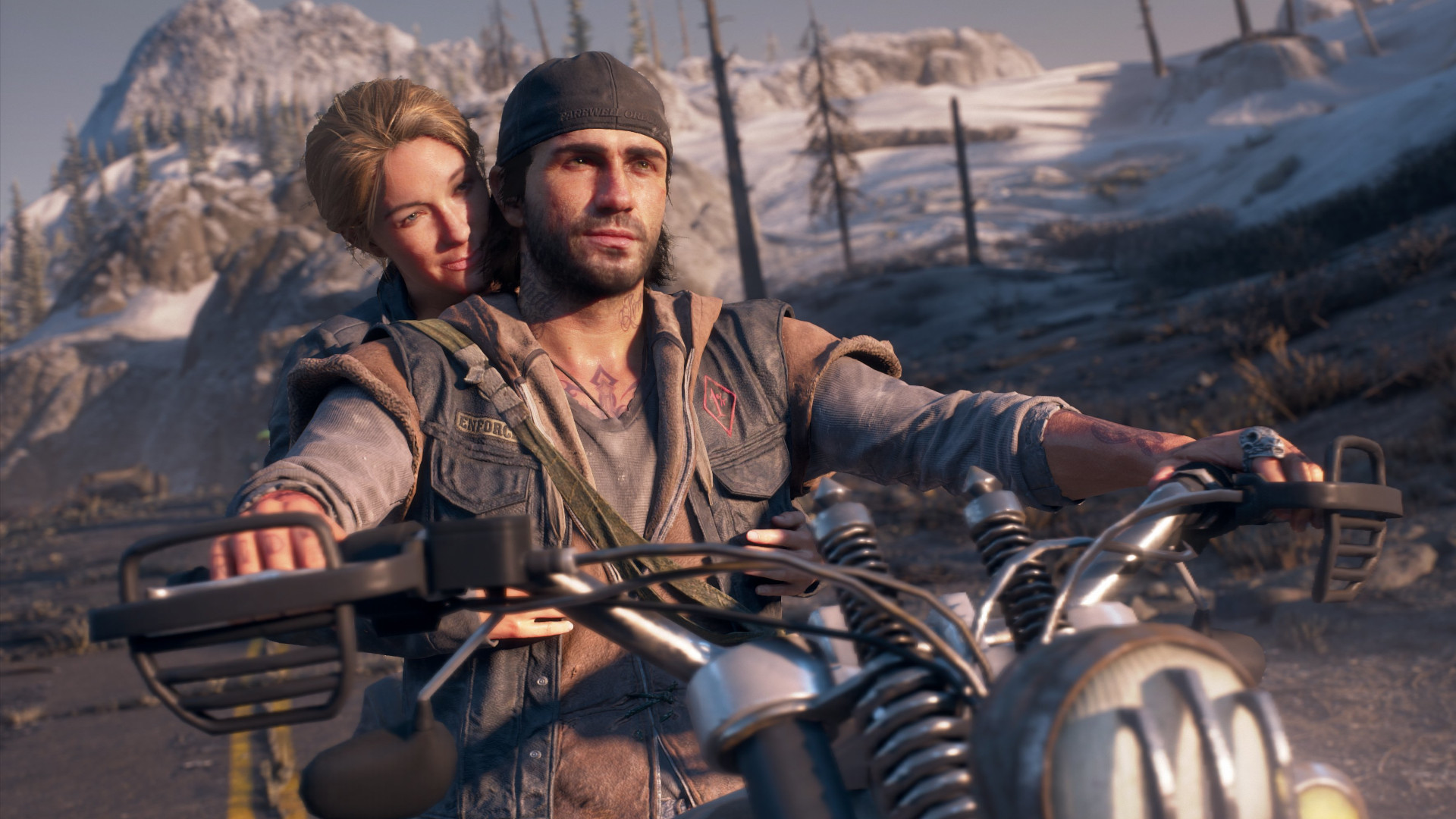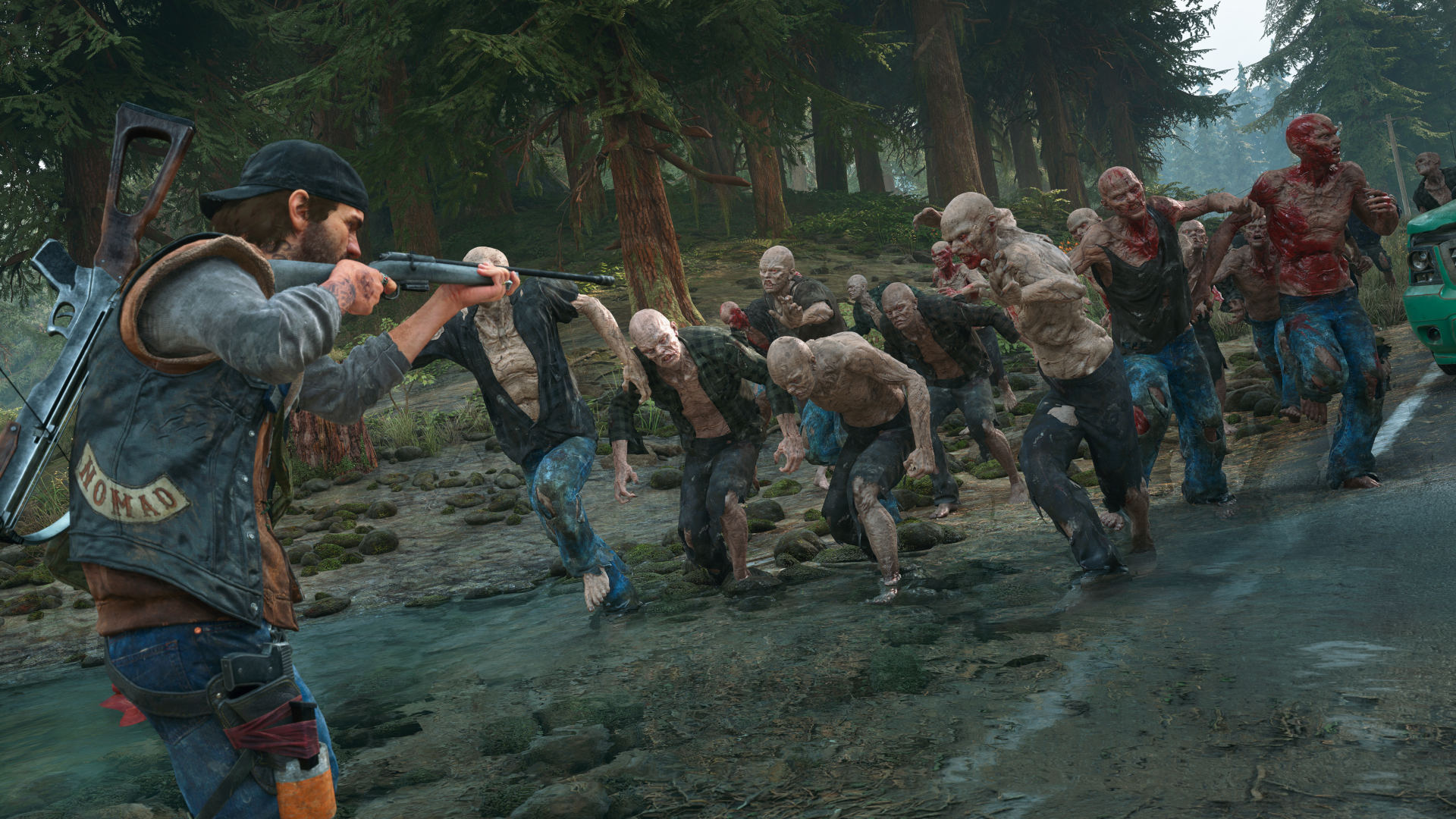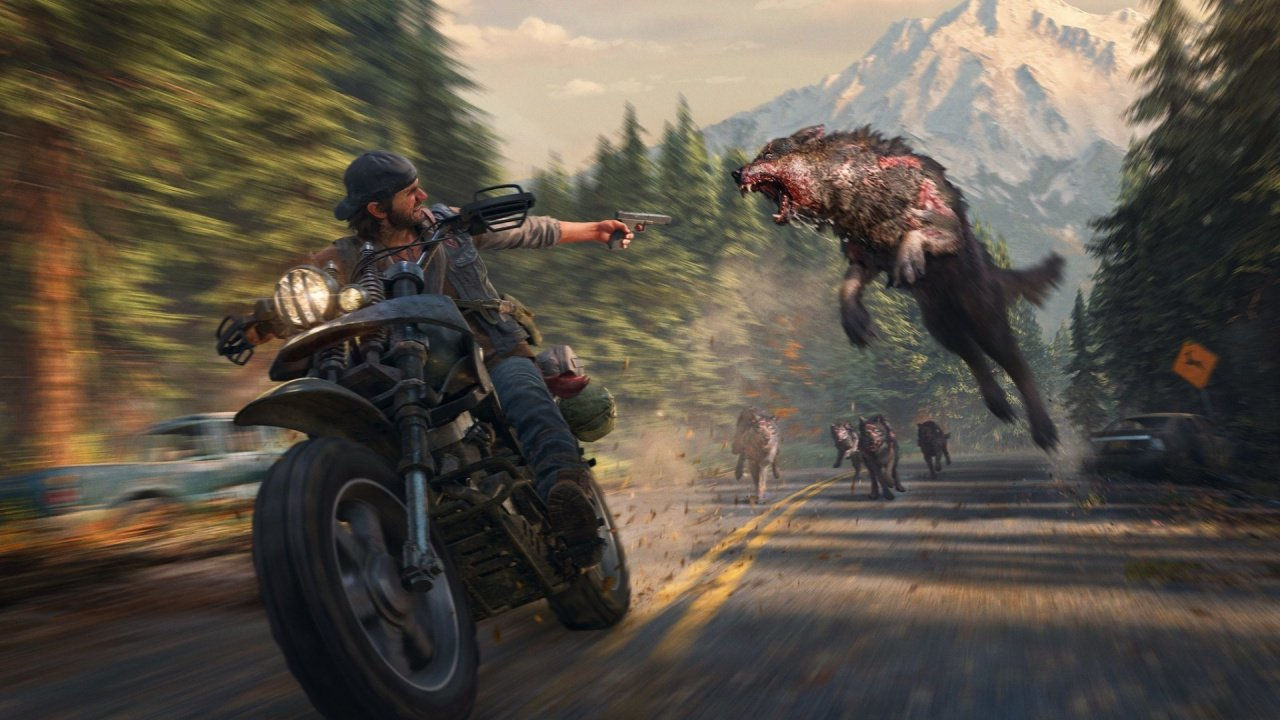Days Gone shows sales figures have never meant success
Opinion: forget sales figures entirely

Sign up for breaking news, reviews, opinion, top tech deals, and more.
You are now subscribed
Your newsletter sign-up was successful
To the surprise of many, Days Gone is newsworthy again. Not the game itself, mind, but its treatment by publisher Sony. The nearly three-year-old PS4 game, that follows a moustachioed biker across a zombie-infested America, might seem like an open-and-shut case: the game’s initial release was met with little fanfare, its critical response was positive but middling, and last year’s PC port finally presented the game in the best state it’s ever been.
A reasonable success, you might think. Nothing to rave about, but certainly one to enjoy from the backlog. It’s that success, though, that’s become something of a hot topic. Responding to a celebratory announcement earlier this week that Sucker Punch’s Ghost of Tsushima has sold more than eight million copies, Days Gone co-director Jeff Ross took the opportunity to talk about his game’s comparative treatment.
It, too, had apparently sold over eight million copies at a similar point in its post-launch run, but didn’t receive nearly the same praise from Sony. “Local studio management always made us feel like it was a big disappointment,” Ross said, emphasizing that it was the Days Gone’s sales that disappointed the higher-ups, not its review scores. Hardly the corporate slap on the back and social media adulation that Ghost of Tsushima has received from Sony
It’s a kick in the teeth to any developer to see their creation treated unfairly, but perhaps that punt in the mouth hurts a little more when it comes from your own publisher. For all the talk of artistry and auteurism in the video games industry, it’s still a commercial space that’s, notionally, supposed to reward commercial success. If a game sells well, and its creative team is still on board, you can probably expect a sequel down the line. But for Days Gone, Ross says, that wasn’t on the cards.
Games that nearly got away

For me, Ross’s reaction says less about why Days Gone was shelved than it does the relevance of sales figures full stop. Maybe Sony didn’t consider the game’s setting to have the longevity it was after, or the game didn’t lend itself to adaptation (remember, a Ghost of Tsushima movie is on the way). It’s easy to speculate about the game’s demise, but what we can say for certain is that video game sales are rarely a useful indicator of success.
I mean real success. The kind that matters. The kind that has players talking about a game years after its console generation has passed, or trying to remake and emulate it in future decades when its original tech has fallen into the ill-fated land of ‘retro’. It’s great fun to talk about the ridiculous sales figures of Grand Theft Auto 5, the world-eating commercial behemoth that is Minecraft, or the charming thought that Tetris can still hold its own against modern triple-A releases. But such figures often fail to paint the full picture.
"What the discussion around Ghost of Tsushima and Days Gone does highlights is that the reaction to sales figures often says more about a game than the figures themselves."
Take Psychonauts, Tim Schafer’s much-lauded mind-jumping platformer. Now, it’s considered a cult classic that embraced the sheer silliness of its characters and absurdity of its themes in a way few 3D platformers had before. Its long-anticipated sequel, released last year, had the gaming world collectively wondering why we ever let Razputin get away for so long. The original Psychonauts’ release in 2005, though, told quite a different story. Although a darling for critics, it sold fewer than 100,000 copies and led to the resignation of its publisher’s CEO. Viewing Psychonauts from a wholly commercial angle makes it look like an embarrassing flop, but we all know that the game rocks.
Sign up for breaking news, reviews, opinion, top tech deals, and more.
Take a step back in time to 1999 and you’ll find a similar story with System Shock 2. A ground-breaking immersive sim that mixed RPG progression, expansive exploration, and narrative flavor so deftly that it’s still a joy to play today, despite its enemies looking closer to lumps of playdough than the fleshy monstrosities they’re supposed to portray. Eight years later, it served as the spiritual successor to a little-known game called BioShock, but spent most of its life boasting poor sales figures, while stuck among protracted legal wranglings surrounding its intellectual property rights.
Of course, there are also more recent releases to point to. Bioware’s exosuit-clad third-person shooter Anthem was one of the best-selling releases of 2019. But you won’t find many people playing it today, nor willing to testify their love for its exhausting grind that quickly turned off players. Cyberpunk 2077, too, has managed to clinch record-breaking sales figures, despite the buggy controversies that riddled its launch.
There are plenty more examples too: Beyond Good & Evil, Conker’s Bad Fur Day, Ōkami , Kingdoms of Amalur. Take your pick.
Deserved reception

All of this might seem trivial. It’s not difficult to see that commercial success and critical reception don’t always align, or that popular perception might be totally different from either. Nostalgia is a powerful force, and the influence of critics tends to wane as the years pass. Games, like any other medium, are subject to the cultural zeitgeist, made for consumer trends and artistic styles that flip back and forth.
But what the discussion around Ghost of Tsushima and Days Gone does highlight, however, is that the reaction to sales figures often says more about a game than the figures themselves. Do players and management congratulate the devs on a job well done? Do they bawk at the astonishingly low sales for a standout game? Do they duly agree that it got exactly the commercial response it received? A year after a game’s release, the general consensus towards it will likely be decided. Whether the publisher, developer, or players feel the need to celebrate that consensus, and the achievements of the game’s creators, says the most about whether a title is considered a success.
For Days Gone, that consensus was one of middling acknowledgment. It didn’t receive the praise of Ghost of Tsushima, or develop the same scale of committed fanbase. Commercially, it may have deserved far more credit than it received from the suits above, but critically, not so much. After all, sales figures have never correlated with real success.
- PlayStation 4 must-haves: the best PS4 games

Callum is TechRadar Gaming’s News Writer. You’ll find him whipping up stories about all the latest happenings in the gaming world, as well as penning the odd feature and review. Before coming to TechRadar, he wrote freelance for various sites, including Clash, The Telegraph, and Gamesindustry.biz, and worked as a Staff Writer at Wargamer. Strategy games and RPGs are his bread and butter, but he’ll eat anything that spins a captivating narrative. He also loves tabletop games, and will happily chew your ear off about TTRPGs and board games.